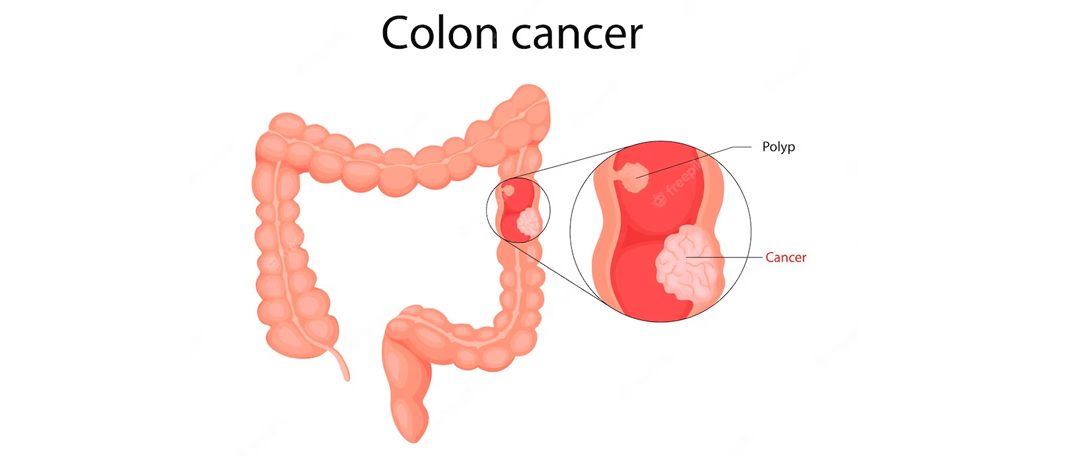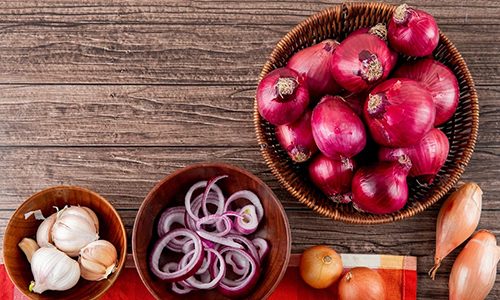According to the Centre for Disease Control and Cancer Prevention(CDC), colon cancer is the fourth most common cancer in the United States. Additionally, the American cancer society (ACS), stated that about 1 in 23 men and 1 in 26 women develop colon cancer in their lifetime.
The development or growth of cells in the inner lining of the colon tube results in colon cancer.
Though colon cancer is a dangerous disease, with early screening and certain prevention measures it can be controlled. Learn more about colon cancer and some simple prevention strategies.
What Is Colon Cancer?
The colon is the large intestine that carries the digested food to the rectum and eliminates it from the body. Colon cancer arises when the cells in the intestine and rectum grow excessively. Colon cancer is also known as colorectal cancer which specifies the cancers of the colon and rectum.
The symptoms of colon cancer are given below
- Constipation
- Diarrhea
- Blood in the stool
- Rectal bleeding
- Digestive disorders
- Abdominal pain
- What Causes Colon Cancer?
Diet plays a major role in a healthy lifestyle. Western diet is low in fibre and high in fat and calories, leading to major health issues. For instance, processed meats like hot dogs, bacon, sausage, and cold cuts are majorly associated with colon cancer. Some chemical agents like nitrate and nitrite are added to processed food which creates carcinogens, also known as the cancer causing-agents.
Some of the other factors that develop the risk of colon cancer include:
- Older Age
- Inflammatory Intestine
- African-American race
- Family history of colorectal cancer
- Low-fibre and Fatty foods
- Smoking
- Diabetes
- Alcohol
- Obesity
Prevention Methods to Lower the Risks of Colon Cancer
Certain factors like age or family history of colon cancer are unpreventable. However, some lifestyle changes will reduce the risk of colon cancer.
Add More Vegetables, Fruits and Grains to Your Plate
A diet with more fruits, vegetables and grains helps reduce the risk of colon cancer. They contain vitamins, minerals, fibres and anti-oxidants which will boost the immunity to fight against cancer. Add a variety of fibre-rich foods such as
- Soya beans
- Pinto beans
- Kidney beans
- Lentils
- Black peas
- Legumes
Avoid Processed or Red Meat
Red meats like steak, beef, and pork increase the risk of colon cancer. Bacon, sausage and bologna are some processed meat that will raise the risk even more. So, it is highly recommended to limit or avoid consuming meats.
Garlic and Onions Fight Against Cancer
These vegetables possess the ability to reduce the risk of colon cancer. Add more onions and garlic to the foods you consume.
Limit Alcohol Consumption or Avoid It at All
Avoiding alcohol consumption can minimize the risk of cancer. Else, limit the amount you consume.
Try to Quit Smoking
Smoking can cause 15 types of cancer including colon cancer. Apart from cancer, smoking raises the risk of other diseases like heart attack, chronic lung disease, and stroke. You can witness the benefit as soon as you quit smoking.
Maintain a Healthy Weight
Being overweight can increase the risk of cancer. Around 13 types of cancers have been associated with obesity. In case you need to lose weight ask a nutritionist or your healthcare provider as they will suggest the healthy guideline or tips to reduce your weight.
Workout Everyday
Workouts improve your mental health, lift your spirits, and help stay fit and healthy. Exercising regularly lowers the risk of various diseases including colon cancer. Selecting the physical activity is your own preference. Initially, you can exercise for around 20 to 30 minutes and extend the session each day.
Cancer is unpreventable, but that doesn’t mean there is no hope. With advanced medical research and analysis healthcare providers come up with various solutions for serious diseases.
Following a healthy balanced diet, and a health professional’s advice will keep you fit and healthy.




















